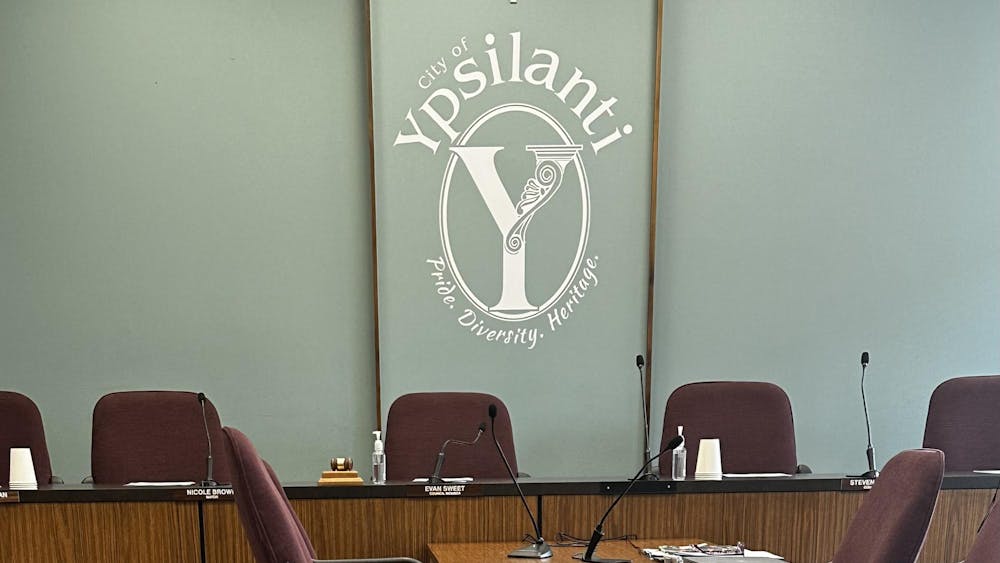On April 24, the Eastern Michigan University Student Senate ratified the results of the 2014 general election of the student body, making Desmond Miller the official student body president for the 2014-2015 school year. Some members of the senate and other students are calling this ratification into question, stating that a quorum was not reached at the April 24 special Senate meeting.
Ilkhomjon Amanov, EMU Student Senator, sent out an email to members of Student Government Saturday afternoon to formally challenge the Chair, Vice President Nino Monea’s ruling that a quorum was reached at Thursday’s meeting.
“On Thursday April 24th, The Constitution and the Bylaws of Student Government were violated,” Amanov said in his email. “I am writing this email to challenge the decision of the Chair, Nino Monea, for breaking the rules. The voice of the Senate will not be silenced.”
Monea said the size of the Senate Thursday night was important to note. At the time of the meeting, there were 20 sworn-in Senators, three officers of the Senate and four delegates making for a total of 27. By these numbers, majority for a quorum is 14, according to Monea.
The attendance and minutes of Thursday’s meeting can be seen here.
At the meeting, Monea confirmed there were 14 present members of the Senate, including 10 sworn Senators, three officers of the Senate and one delegate.
“We had a quorum,” Monea said.
Amanov’s challenge of the quorum was based on the claim that Delegate David Michaels, the one delegate present Thursday night, is not a legitimate delegate because the Senate did not vote upon him.
He cited Chapter 2, Section 6 of the Student Government bylaws which states that properly applying constituencies must be voted upon by the Senate and the Senate will vote to determine the delegate seats for the following year.
Monea raised the point that none of the delegates could be considered legitimate if held to these same standards, which changes the overall numbers of the Senate. Without the four delegates, the Senate total changes to 23, making 12 the majority needed for quorum.
“As result, if we exclude the delegates, quorum was still met,” Monea said.
Additionally, Amanov said Monea, Judicial Sergeant Steven Cole and Clerk Eden Zimak were not members of the Senate and therefore could not be counted in the quorum.
Amanov cited Chapter two of the Student Government bylaws, which states, “The Judicial Sergeant shall be an officer of the Senate, but shall have no vote, nor fill a seat of the Senate.”
Even the quorum protocol for EMU’s Student Senate has been called into question.
“According to Chapter 9 of the Bylaws (9.6 Parliamentary Authority), ‘The most current edition of Robert’s Rules of Order shall be the parliamentary authority for all matters that are not covered by Student Government policies,’” Amanov said in his email. “The definition for the term quorum is comprehensively covered in the Constitution of the Eastern Michigan University Student Government document, and therefore, Robert’s Rules of Order cannot be used to define the term quorum.”
Monea said Robert’s Rules were only used to clarify who may be included in reaching quorum, not what defines a quorum.
“On areas where the governing documents are silent, such as on whether or not officers count towards quorum, we may look to Robert’s Rules to elucidate the situation,” Monea said. “In the present case, the governing documents do not exclude officers from the quorum, so we may look to Robert’s Rules.”
According to Chapter 2, Section 3 of Robert’s Rules, “The minimum essential for the conduct of business in a deliberative assembly are a presiding officer, who conducts the meeting and sees that the rules are observed, and a secretary, or clerk, who makes a written record of what is done – usually called ‘the minutes.’ If the officers are members of the assembly – as they usually are in ordinary societies – they are counted in determining whether a quorum is present.”
Monea also turned to Robert’s Rules when considering Amanov’s challenge of the Chair because such a challenge is not mentioned anywhere in the governing documents.
Chapter 5, Section 24 of Robert’s Rules states that appeals must be made at the time of the ruling and if any debate or business has intervened, it is too late to appeal.
“Needless to say, debate and business has intervened between the declaration of quorum and the time the complaint was filed. Hence, it cannot be challenged,” Monea said.









